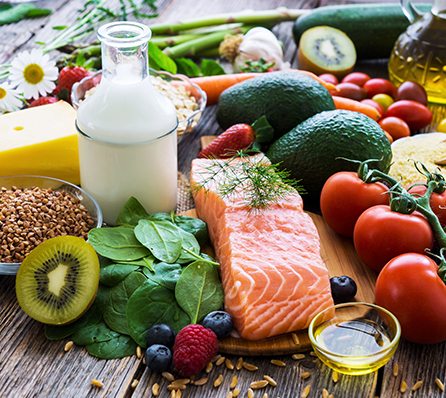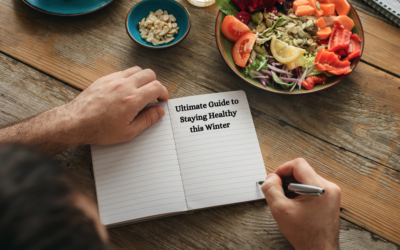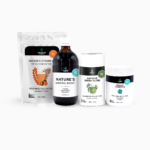There seems to be a common trend that ‘if you suffer from gallstones then the solution is to remove your gallbladder.’ Why?
Every organ within our body has its own function and is vital for your body to perform optimally. If the organ wasn’t serving a purpose, why would we be born with it?
The gallbladder certainly is worthwhile nurturing and keeping if you can. The gallbladder is a small pear-shaped organ that stores bile and is located just beneath the right lobe of the liver. The role of the gallbladder is to reserve bile when it is not being used for the digestion of fats. When food is ingested and enters the small intestine, a hormone known as cholecystokinin signals the gallbladder to contract and secrete bile to begin the breakdown of fats.
One of the most common surgeries to be performed is gallbladder removal, which is known as a cholecystectomy. This is usually carried out to remove gallstones. To me, the removal of the gallbladder is just another ‘Band-Aid’ solution, as we haven’t discovered WHY gallstones formed in the first place. Instead we’ve just masked the problem by removing the complete gallbladder. The original cause of the problem will still be there, it just won’t eventuate into gallstones anymore, instead it will manifest as something else in the future.
Foods to avoid if you have gallstones:
- Gluten – including wheat, rye, spelt, oats and barley
- Soy – particularly if it has not been fermented. Organic tamari may be well tolerated
- Corn – particularly if it is not organic
- Refined vegetable oils, though cold pressed and organic oils are fine such as olive oil and coconut oil
- Foreign additives such as preservatives, flavours and colours and so on. Avoid anything you do not recognise the name of
- Unactivated nuts and seeds
Foods to eat if you have gallstones:
- Fermented foods – provides beneficial bacteria to aid digestion and aid in eliminating toxins
- Turmeric – reduces inflammation, pain and aids in liver health
- Dandelion root – aids in liver and gallbladder function
- Milk thistle – aids in liver health
- Activated charcoal – to aid in the elimination of toxins
- Plenty of green vegetables and fresh herbs such as coriander, thyme, oregano and basil
- Pastured, free range meats
- Wild caught fish
- Activated nuts and seeds
- Soaked and/or fermented organic grains like rice, quinoa and buckwheat if tolerated
- Apple cider vinegar to aid digestion through increasing the stomachs acidity and enzyme production. It has been known to reduce the severity of the gallstones and their pain. Mix 1-2 tbsp. of raw and organic apple cider vinegar into water and drink this daily.
- Quality fats such as grass fed butter or ghee and cold pressed coconut oil, olive oil and Inca Inchi oil
What to eat if you’ve had your gallbladder removed?
If you have had to have your gallbladder removed, it is important to not return back to the diet and lifestyle you had that caused your gallstones to form. It is important to consider WHY they occurred, and discover what you can do differently.
The common bile duct still remains after the gallbladder is removed, which allows an individual to ‘survive well’ without it. There is in fact very little evidence showing that a low fat diet improves the symptoms in individuals that have just had their gallbladder removed.
- Do not go on a low fat diet. In short, fats are crucial for your health to:
- Absorb fat soluble vitamins like vitamin A, D, E and K.
- Hormone production
- Cell to cell communication
- Brain health
- For their antimicrobial properties for your immune system
Recommendations
- Ox bile – I recommend this to everyone who has had their gallbladder removed as it just seems to help. It is simply the ‘replacement method’. It gives you the ability to break down fats more efficiently if your liver is not producing the amount of bile needed to digest the fat that you are eating.
- Consume fermented foods. These are pre-digested by bacteria and therefore make these foods easier to digest. Nutrients are also enhanced when the food is fermented, and they are incredibly rich in enzymes that will assist in the digestion of your food, as well as provide essential beneficial bacteria that may be altered during your surgery.
- Coconut oil is a great fat for those with no gallbladder as it doesn’t need bile acids for absorption, so it is absorbed in the small intestine.
- Look after your liver. If you had your gallbladder out, then there is a high chance it began with liver problems, so consider seeking advice to support your liver.
- Dandelion root is fabulous to support the common bile duct to aid in the digestion of fats. It helps with bile synthesis. Dandelion root is also fabulous for liver health.
- Ginger can also help breakdown fat, and calm down any nausea you may experience.
- Avoid canola oil, soybean oil, corn oil, and all hydrogenated vegetable oils including margarine, vegetable fat and so on.
- Avoid foods that are difficult to digest such as processed, refined foods. This will ensure you are getting the most out of your food.
If you have had your gallbladder removed, there is no reason to stress! Of course it is best to keep your gallbladder where it belongs, although you now have the tools, tips and tricks to ensure you continue living a long, happy life with a diet that is smothered in good fats with no problems.
Sheridan Williamson
Nutritionist









Can you drink apple cider vinegar, lemon juice, raw honey, cinnamon, cayenne pepper with water. I had my gall bladder taken out in January,
Hello Karla!
Thanks for your comment. There are no problems at all with those beautiful foods if you have had your gallbladder removed.
Hope this helps 🙂
How much good fat can I eat daily after gallbladder removal surgery?
Hi Eva, it’s very hard for us to recommend anything to you without seeing what your current diet looks like. You’re best chatting to your chosen health care practitioner or seeking out an Integrative Dr. for more individualised advice.
Dandelion is very high in oxalates, can I take dandelion for long time to improve my hair without risking getting stones ? my gallbladder was removed. I had also stones in my kidney ducts.
Hi Claude. Without knowing your personal history it is difficult to advise, however, a tea form of dandelion root would likely be well tolerated which will help support your liver. But, for high doses for an extended period of time we advise you to seek personalised advice from a practitioner.
Hi there,
I have had my gall bladder removed and loved your article
My question is, where can I get ox bile from?
Thank you G
Hi Gillian. Thanks for getting in touch. Ox bile is widely available online. Glad you liked the article 🙂
When is the best time in the day to drink the Apple Cider Vinegar. Before or after a meal?
Hi Virginia, you can do either, however before is great as it will help you to digest your meal. But if you forget, don’t worry, just drink some in water later on 🙂
Hi! Thanks for your helpful article. You didn’t address dairy or grains. Is it best to just test it out and see if we are intolerant to them? Some resources state that low fat dairy is fine, others say stay away from it. What are your thoughts on dairy?
Hi Becca,
Unfortunately, there’s only so much we can fit into one blog. I would recommend you have a read through the Changing Habits & Whats With Wheat blogs as there may be answers to your questions in many of the blogs there. If you would like more individualised dietary advice then I would recommend you chat with your chosen healthcare practitioner.
This article says do not do a low fat diet if you’ve had your call bladder out. Does that mean you shouldn’t do the protocol?
Hi Mollie! I see our lovely coach, Leanne Blackman has answered your query on this in our Changing Habits Protocols Facebook page. I’m just going to post her advice here for anyone else wondering the same: “Long term good fat removal is not a good idea. I would always recommend seeking guidance from your health professional prior to starting the protocol to ensure you have clearance before starting. The good news is that Mel and I have coached loads of people who have successfully completed the protocol post gallbladder removal – generally, the loading phase is the trickiest but, with a few changes, paying attention to the good fats suggested it can be done really well.” Good luck!
Im suffering from intense vomiting and diarrhoea periodically -suspected gall bladder issue currently being investigated.
Im so scared to eat as there don’t seem to be common aggravating foods.
What can i ingest to keep me going until this is resolved?
Hello Hina. I’m sorry to hear you are suffering with these issues. I would recommend talking it over with your preferred healthcare provider or get in touch with our consulting nutritionist, Sheridan. See more details here: https://changinghabits.com.au/consulting-nutritionists/ Best of luck.